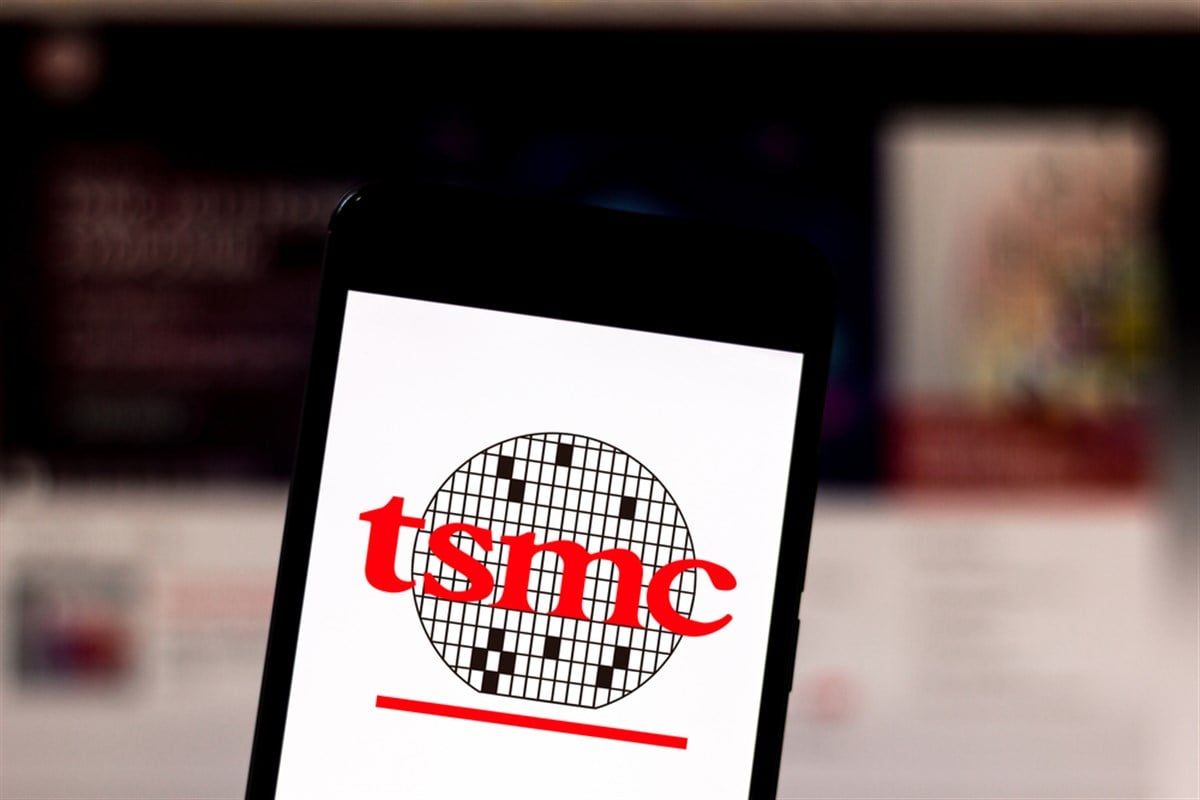
Taiwan Semiconductor Manufacturing Company (NYSE: TSM), the world’s largest contract chipmaker, defied Wall Street expectations with a flat fourth-quarter revenue report. At first glance, this may seem underwhelming. However, a closer look reveals a more complicated strategy at play. This new strategy masks a strategic pivot towards a booming future fueled by Artificial Intelligence (AI).
From groundbreaker to industry titan
TSMC is a foundry, a silicon subcontractor, that creates the miniature brains that power our digital world. Unlike traditional chipmakers that design and manufacture their chips, TSMC only fabricates chips, carefully constructing these complex circuits based on designs provided by technology leaders like Apple (NASDAQ: AAPL), Nvidia (NASDAQ: NVDA), and Qualcomm (NASDAQ: QCOM).
This distinctive “foundry model” has propelled TSMC to the top of the industry. It is the world’s largest chipmaker, holding the title of Asia’s most valuable company. Its chips power our smartphones, tablets, and laptops, enabling the seamless flow of information that defines our modern lives. The company’s reach extends far beyond consumer electronics. TSMC’s silicon powers the servers that crunch data in the cloud, the high-performance computing clusters driving scientific breakthroughs, and even the silicon designed to power the emerging artificial intelligence sector.
Flat revenue, soaring prospects
Taiwan Semiconductor Manufacturing Company’s recent Q4 revenue report may seem contradictory at first glance. The company’s flat results contrast with strong global tech demand. However, a closer look reveals a more complex story of strategic reinvention driven by the growing wave of artificial intelligence (AI).
While overall revenue remained level compared to the same period last year, a closer inspection provides a little more context. TSMC experienced a slight dip in smartphone chip sales, reflecting market saturation and pandemic-induced demand normalization. Additionally, certain legacy product lines encountered issues due to ongoing supply chain constraints. These factors, combined with ongoing geopolitical uncertainties, contributed to the muted headline revenue figures.
In contrast to the flatlining revenue figures, the AI-centric chip sales numbers demonstrated considerable promise. As AI’s insatiable appetite for computational power grows, TSMC has shifted its focus toward crafting the specialized silicon chips that underpin these next-generation systems. This deliberate shift toward higher-margin, cutting-edge AI chips, while strategically dampening overall revenue in the short term, is sowing the seeds for explosive future growth.
Navigating the chip circuit
TSMC’s AI-driven pivot has promising potential, but the tech industry faces challenges specific to the tech sector. The challenges, geopolitical uncertainty, and intense technological competition necessitate carefully navigating the company’s internal strategy.
Tensions on the horizon
TSMC’s geographic location in Taiwan casts a long shadow in today’s volatile geopolitical climate. The ongoing tensions between the United States and China, both key markets for the company, add an element of risk. Any escalation could disrupt supply chains, impact trade relations, and jeopardize TSMC’s global position.
The race for next-gen nanos
Beyond geopolitical concerns, the tech race continues to intensify. Rivals like China’s Semiconductor Manufacturing International Corporation (OTCMKTS: SMICY) are closing the gap, making significant strides in miniaturization and threatening TSMC’s technological leadership. The relentless pursuit of next-generation chips, like the 3nm node, demands substantial R&D investments and continuous innovation to stay ahead of the curve.
Charting the course
TSMC is not sitting idly by in the face of these challenges. The company is actively pursuing a multi-pronged strategy to mitigate risks and secure its future. Expansion plans include building new facilities, diversifying manufacturing capabilities, and reducing reliance on any geographic location. Additionally, TSMC is pouring resources into R&D, focusing on cutting-edge technologies like 3nm chips and advanced packaging solutions to maintain its technological edge.
Supply chain symphony
Recognizing the vulnerability of a single-source supply chain, TSMC is also proactively diversifying its material sourcing and collaborating with key partners to strengthen its ecosystem. This collaborative approach aims to build resilience and minimize disruptions caused by unforeseen events.
TSMC’s global footprint and future impact
While TSMC’s Q4 results may have initially raised questions, a deeper analysis reveals a company at the precipice of a transformative era. Beyond the flatline and AI pivot lies a broader narrative, one interwoven with leadership transitions, global implications, and the very future of technological innovation.
The recent appointment of C.C. Wei as CEO marks a new chapter in TSMC’s leadership. His extensive experience within the company and focus on technological advancement position him well to navigate the challenges and opportunities of the AI landscape. This leadership shift and TSMC’s unwavering commitment to R&D suggest a future fueled by sustained innovation and continued industry dominance.
But TSMC’s impact extends far beyond internal transitions. Their success and challenges are linked to the health of the global tech ecosystem. Their chips power the devices that drive our economies, shape our communications and push the boundaries of scientific discovery. A resilient TSMC signifies a thriving tech landscape, fostering progress and economic growth.
